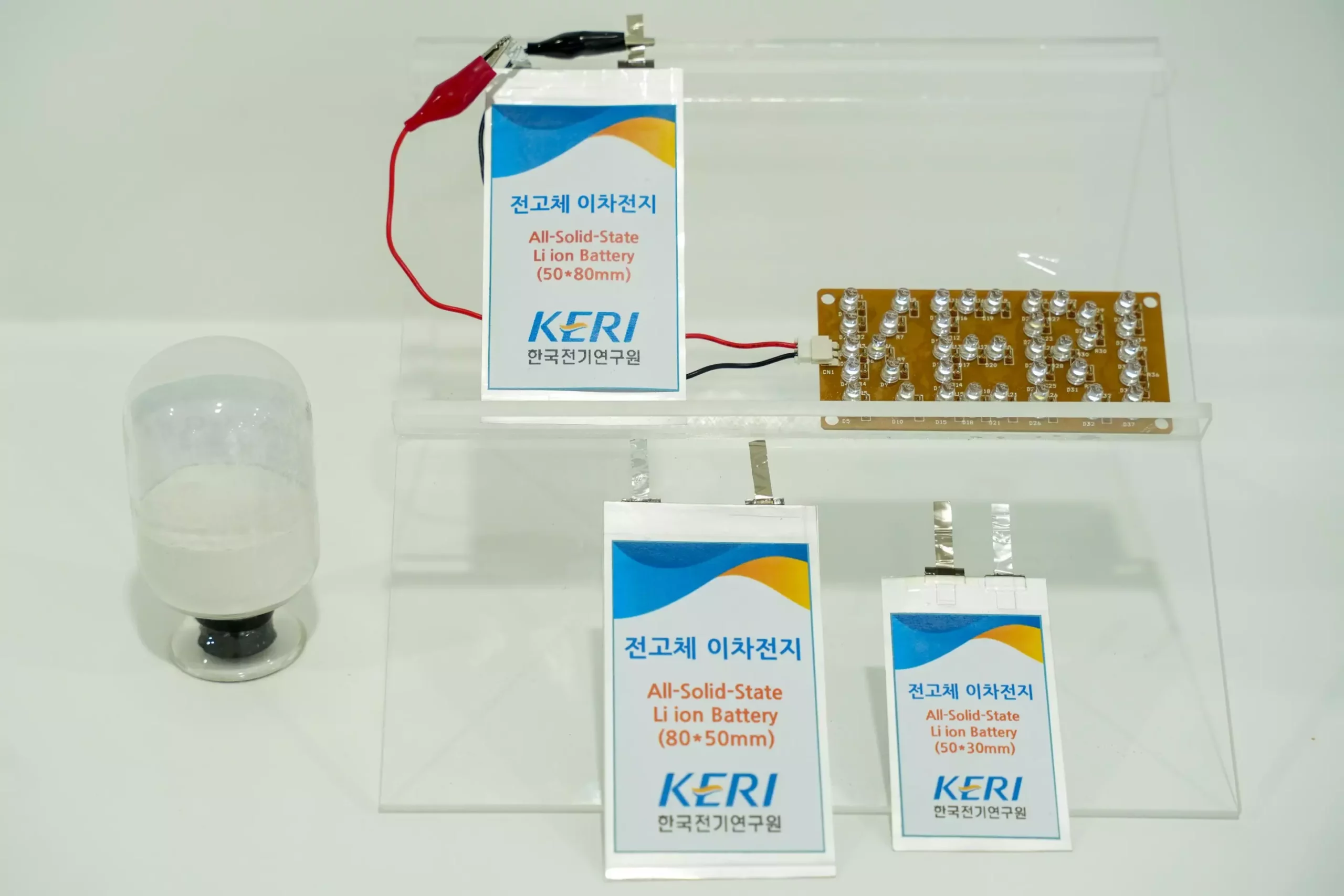Korea Electrotechnology Research Institute (KERI) has made a significant advancement in the field of all-solid-state batteries with a recent study published in Energy Storage Materials. This study represents a major step towards the commercialization of batteries that are free from the risks of explosion and fire. Dr. Park Jun-woo and Sung Junghwan have developed a revolutionary technology focused on the “size-controlled wet-chemical synthesis of solid-state electrolytes,” which not only reduces processing time and cost but also improves the quality of the batteries.
All-solid-state batteries use solid-state electrolytes instead of liquid ones to facilitate ion transfer between the cathode and anode. This design significantly decreases the risk of fire and explosion. However, to integrate solid-state electrolytes into all-solid-state batteries, especially in the cathode, the electrolytes need to be extremely small, measuring only a few micrometers. KERI has managed to develop a technology that can mass-produce these tiny solid-state electrolytes with enhanced ionic conductivity through a simplified process.
Instead of the traditional method of using large solid-state electrolyte particles that require additional processes like mechanical grinding, KERI’s approach streamlines the production process. This not only saves time and cost but also avoids the performance degradation associated with grinding. By using microscopic raw materials and carefully controlling the nucleation rate during chemical reactions, KERI has been able to produce fine solid-state electrolytes with a high level of ionic conductivity.
The KERI research team’s innovative approach has resulted in a remarkable increase in ionic conductivity, from 2 mS/cm to 4.98 mS/cm, surpassing the levels achieved by existing production methods. After years of experimentation with various materials and thorough analysis, the team found the ideal combination for optimal performance. Dr. Park stated, “By selecting the right materials and controlling the chemical reactions effectively, we have been able to simplify the production process while maintaining high quality.”
KERI has already submitted several patent applications for this groundbreaking technology and expects significant interest from the all-solid-state battery industry. The institute plans to enter into technology transfer agreements with companies that are interested in implementing this technology. Additionally, KERI aims to combine this achievement with a special wet synthesis technique that can produce solid-state electrolytes at a fraction of the cost using a patented additive, positioning KERI as a leader in the cost-effective mass production of high-quality solid-state electrolytes.


Leave a Reply